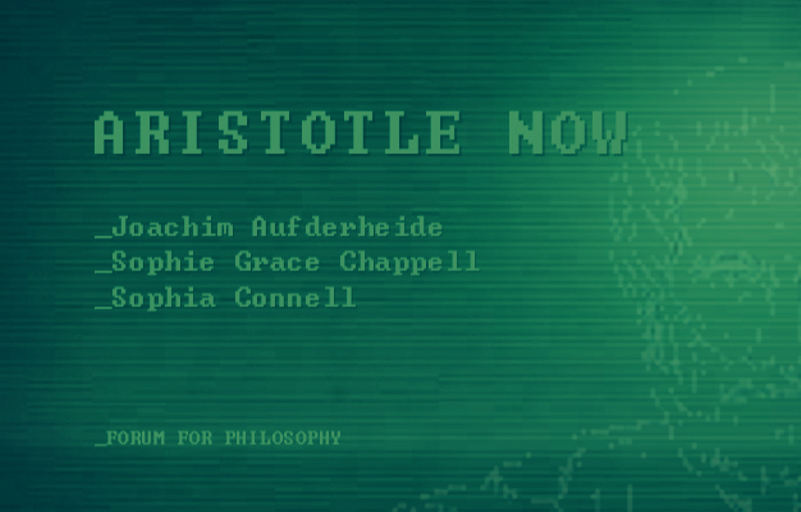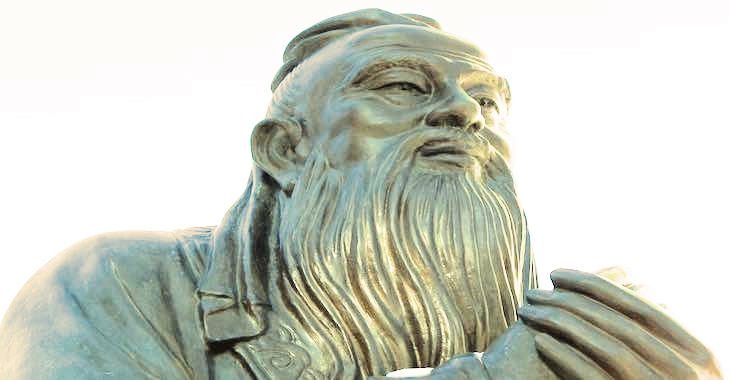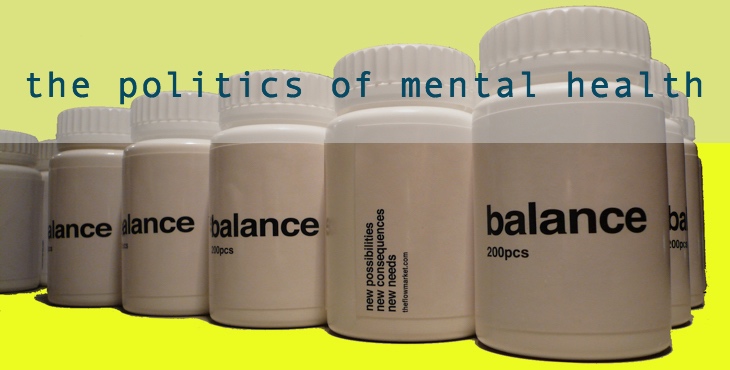Fake It Till You Make It
Margaret Hampson on imitation and being good
Humans have a natural tendency, from childhood onwards, to imitate, and this distinguishes
man from other creatures, that he is thoroughly imitative, and learns at first by imitation.
—Aristotle, Poetics 4.
What is it to be a good person? Is it the sum of our actions or something deeper about ourselves, about our character? And how do we develop a good moral character, and raise children of good character too? These are questions with a long history, at least as far back as the Ancient Greeks.
The notion of becoming good and shaping our moral character is at the heart of the major Greek ethical systems, especially those of Plato and Aristotle. Here the notion of being a good person is captured by the concept of moral or ethical ‘virtue’ and exemplified in the figure of the virtuous person. Importantly, for both Plato and Aristotle, being virtuous is not merely a matter of acting a certain way, of doing just, moderate, or courageous things: repaying our debts, refraining from overindulgence, standing firm in battle, and so on. Rather, being virtuous means being a certain sort of person, having a certain sort of character. Aristotle captures this condition in the following way: the virtuous person is one who knows or understands what is the ‘fine’ (or ‘noble’, kalon) thing to do in a given situation, who wants to do the fine thing, and who does it because it’s the fine thing to do. What is more, this is not something occasional but a firm and unchanging state. He also says of the virtuous person’s emotional responses—such as anger or fear—that she experiences these at the right time, towards the right things, in the right way, and so on.
This is undoubtedly a demanding state. But Aristotle thinks that this can be achieved by practising virtuous behaviours (despite not yet being virtuous ourselves). Thus he writes in the Nicomachean Ethics (1103a22-b2):
Men become builders, for instance, by building, and lyre-players by playing the lyre. Similarly, then, we become just by doing just things, moderate by doing moderate things, brave by doing brave things.
What Aristotle says here strikes me as broadly correct. It is hard to see how without the practice of sharing, someone could become a generous adult—someone who shares unprompted and who does so without reluctance because it is the right thing to do. Yet at the same time, Aristotle doesn’t offer us much detail. If action alone does not make a person virtuous, what is it that happens when we practice virtuous actions that can result in the development of a virtuous character? I propose that the concept of imitation can help us here.
As human beings, we have the capacity to make ourselves—for periods of time, at least—like other people. We can do this through our actions, our mannerisms, our voice, and so on. This capacity to imitate others is, of course, the foundation of drama: it is what enables actors to present themselves as characters on stage or screen, whether as Queen Elizabeth or Medea. It can also be used for more malign purposes, to deceive others into believing we are someone other than we are. Think here of The Talented Mr Ripley. In either of these cases, imitation is primarily a matter of appearing a certain way for the purposes of entertaining or deceiving others. Imitators do not usually share any deep similarities with whomever they imitate.
Yet imitation can also be transformative, for in certain circumstances, and under certain conditions, we not only appear to be like the people we imitate but actually become like them. The transformative power of imitation was recognised by a number of ancient Greek thinkers, including Plato in his Republic, where he has the character Socrates (395c-d) argue as follows:
… if [the young guardians of the Republic] imitate anything, they must imitate right from childhood what is appropriate for them—that is to say, people who are courageous, moderate, pious, free, and everything of that sort. On the other hand, they must not be clever at doing or imitating illiberal or shameful actions, so that they won’t enjoy the real thing from imitating it. Or haven’t you noticed that imitations, if they are practised much past youth, get established in the habits and nature of body, speech, and mind?
Here Socrates bears witness to just how thoroughgoing the transformative power of imitation can be: imitations practised beyond youth can become established in our bodily habits, our speech, and even our minds. They can become part of our ‘nature’ (our ‘second nature’, if you will). And in this respect, imitation would seem to have the power to corrupt, as Socrates here warns, but also to shape our moral characters for the better, if we imitate the right sort of people.
Before considering how this might work, I should offer an important disclaimer. Aristotle himself doesn’t say that we become virtuous by imitating a virtuous person nor does he use the Greek term for imitation (mimēsis) anywhere in his account of moral development. He does, however, say that we become virtuous by doing what the virtuous person would do. As the earlier quotation demonstrates, he employs an analogy with skills and how they are taught through practice, which I think is suggestive of the notion of imitation: when we learn new skills, we tend to imitate and model ourselves on a more advanced practitioner. (How many of us learned to cut our hair in lockdown by copying Alexa Chung on YouTube?) Thus, if the acquisition of virtue and of skill are analogous in the ways Aristotle suggests, it is reasonable to suppose that when we practice virtuous actions, this will involve imitating and modelling ourselves on a virtuous person. We might call this ‘emulative imitation’ or simply emulation.
Let’s think a bit more, then, about what is involved in the deliberate and emulative imitation of another person. To emulate another person, we need to pay close attention to our model, to what she does and the circumstances in which she acts. We also need to think about translating this into our own lives: what would it be like to act like our model, but in the context of our own lives? But emulating another person involves more than imitating her actions. After all, remember that being a certain sort of person involves more than performing certain sorts of actions. It involves having certain sorts of beliefs, emotions, desires, and, in short, in seeing the world in a certain way. Thus I suggest that in order to imitate another person in an emulative way, we must attempt to adopt the perspective of our model, to see things as our model does. Think here of the difference between a mime artist and a method actor.
So we have two features of emulative imitation: attending to our role model’s behaviour and what that behaviour might look like in the context of our own lives, and trying to see the world from the perspective of our model. How do these features help us to understand how we learn to be virtuous? Let’s begin with the adoption of a model’s perspective.
One thing that is achieved by adopting the perspective of another is that it forces us to step away from our own particular concerns, even if just momentarily. In doing so, our own perspective becomes enlarged, and we begin to appreciate that the world is not simply structured around our own particular needs and concerns. Where we previously saw our pocket money as something to spend on ourselves, say, we now see that it could also be used to help other people.
But, as I argue in my article ‘Imitating Virtue’, it is by adopting the virtuous person’s perspective in particular that we better appreciate the value of virtuous action. On Aristotle’s view, virtuous actions have the quality of being ‘fine’, and it is because the action itself is fine that the virtuous person performs such actions. Indeed, while Aristotle says little explicitly about the nature of the fine, various remarks in his Ethics suggest that to see an action as fine is all the motivation needed to perform it. Importantly, to perform a generous action because it is fine is consistent with performing it because it will help other people: that it helps other people might well be what makes this generous action a fine one. And it is these sorts of features that will be salient to the virtuous person. Thus in adopting the virtuous person’s perspective, we will be better positioned to appreciate the fineness—the goodness, if you like—of virtuous actions, which we may not have appreciated before. And in order to consider what it would be like to act like the virtuous person, we must consider our own situation from their perspective. In doing so, we learn to see opportunities to engage in fine action and be accordingly motivated. Over time, this way of seeing becomes our own.
What I have offered here is an interpretation of Aristotle’s account of how virtue is acquired that draws on his remarks throughout the corpus—on imitation, on skill, on motivation—in order to develop a plausible account of what happens when a learner practices virtuous actions, and how this results in the state of character Aristotle describes in his Ethics. This is often what scholars of ancient philosophy must do, and the tests for such interpretations are textual consistency as well as plausibility.
A challenge to the plausibility of this interpretation might be this: How do we know what the virtuous person sees when we try to adopt her perspective? How do we know what is salient to the virtuous person, if we don’t yet inhabit this perspective? This would indeed be a problem if we thought that the learner must do this alone. But, of course, we grow up surrounded by others, who can guide our attention, and help us to see those things that are seen from a more mature, more virtuous, perspective. In any case, if this interpretation is correct, then the development of virtue would seem to be significantly dependent on the presence of others. But since—as Aristotle famously writes in the Politics—‘man is by nature a political animal’, this shouldn’t be at all surprising.
The Source Code
This essay is based on ‘Imitating Virtue’, written by Margaret Hampson and published in Phronesis.







